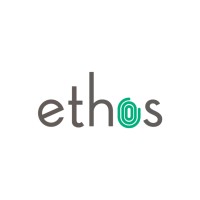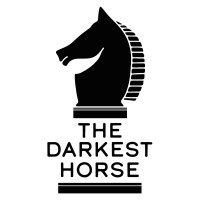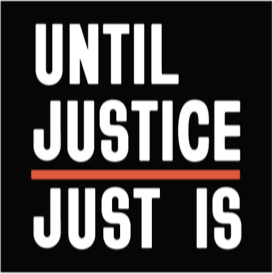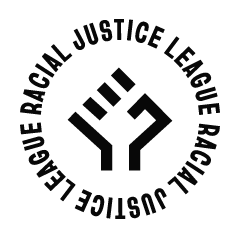
ARC Framework
The Illinois Science & Technology Coalition (ISTC) is committed to creating a more diverse, equitable, and inclusive organization. This drive for change led us to develop the ARC framework, which informs what equity means to us and how we institute it within both our internal and external communities, especially as it relates to supporting the innovation economy of Illinois through our corporate partnerships, policy and advocacy, and providing underserved students with the STEM skills and tools needed to thrive. However, this is just one step in our push for equity, and this work cannot be done alone. We ask everyone in our community to come together and join us in the fight to build a better and more equitable Illinois.
Access to opportunity
Equality means everyone has the same access to an opportunity, and equity means everyone gets their needs met. While equality and equity are not the same, they do work together. We cannot meet the needs of our community without a proper access baseline, which we provide. We understand that baseline is not enough when considering how we need to bring opportunity to those who have had less or none.
We must level the playing field and build an inclusive network for all companies, organizations, and students across Illinois, no matter who they are or from where they come. In our mission to grow equity, we must focus on marginalized communities that we have traditionally left behind to have an equal shot at success and opportunities within the STEM world.

Responsible use of power
Using power responsibly requires understanding the existing power structures, inequalities, and inequities in the broader world and then designing interventions. We teach our partners to continually learn about those we serve to give them what they need rather than what we think they need.
We recognize that our partners have economic and social power that many of our community members do not. We also recognize the power we hold based on our social identities and that many of us have not experienced the same barriers to education that the students we serve have.
Our education programs strive to allow both teachers to have power and the individuals who engage in their curriculum to share in that power.
We have a responsibility to name our power in the relationship with our community and think about how to use it to steer professional and educational equity. This means:
- Inviting and Including: Not just asking what our community needs, but inviting them to the conversation to represent themselves.
- Sharing Power: Creating more opportunities to give our power directly to our community members, whether it is the power of choice, decision-making, or intervention.
Connection through
Community voices
We believe that the innovation economy cannot thrive or survive without keeping diversity, equity, and inclusion at the forefront of our work. We are connectors, conveners, and catalysts for change. It is our responsibility to bridge the educational and professional gaps across all of Illinois.
When it comes to our mentors, instructors, staff members, and corporate partners, we expect that they will uphold their responsibility to drive our mission, vision, and goals through our processes and practices. The focus on connection also applies to thinking about how to do business and who we do business with, making sure that we share our power to create a seat at the table for companies or organizations whose access or voices have been limited. We will encourage challenging students with care and coming up with practical solutions to promote equity together.
We are a source for all people of all backgrounds and walks of life to explore STEM career pathways, and we believe that anyone that sees themselves in this work can be in this work. We aim to open doors for those who may not have exposure to STEM curriculum in their environment by providing them with the adequate resources to learn and connecting them to the right networks to succeed.

ARC in Practice at ISTC
While we are proud to present the ARC framework, we cannot fully live the framework without discussing how we plan to translate these ideas into actions for ISTC.
Illinois Innovation Index and Data Reports: The Illinois Innovation Index is an information resource that provides timely analysis and insight on technology-based economic activity in Illinois. Our emphasis on collecting and archiving data on the innovation economy comes from a desire to identify opportunities (Access to Opportunity) and bring together disparate sources of information around STEM talent production, R&D activity, and university-supported entrepreneurship from across our communities (Connection through Community Voices). We ensure that we hold ourselves to data collection and reporting standards that minimize bias by evaluating our work against our framework (Responsible Use of Power).
Policy and Advocacy: ISTC advocates for sound tech policies and programs at the state and federal levels to ensure more people can pursue pathways in STEM (Responsible Use of Power). We actively support legislation and initiatives that positively impact research, innovation, and technology commercialization (Access to Opportunity). We also collaborate with elected officials, policymakers, regional economic development organizations, universities, industry, and state agencies to attract federal research and technology commercialization dollars to Illinois (Connection through Community Voices).
State and Federal Funding Support: We unite diverse parties and expertise around state and federal funding opportunities (Connection through Community Voices). Our funding support efforts include identifying and supporting areas of common interest to the state’s universities, federal labs, industry, economic development groups, and government to best position Illinois to secure research- and technology-focused federal funding (Access to Opportunity). Our advocacy efforts aim to support those in marginalized communities and groups, serving as a means of leveraging our power to offer more to them (Responsible Use of Power).
Innovation Programming: Programs such as Venture Engine are built on the needs of our Corporate and start-up communities (Connection through Community Voices) and is fully searchable not only through industry, but by historically marginalized founders including women and founders of color. Venture Engine serves as a diversified connector (Responsible Use of our Power & Access to Opportunity) in making sure that all have access to investment and decision makers.
STEM Education:
- STEM Challenges: The ARC Framework lives within our STEM Challenge program, which creates opportunities for high school students to work alongside STEM professionals as mentors (Access to Opportunity)in real world projects. STEM Challenges, push our mentors to act as guides and allow students to practice leadership and approach assignments in their own way (Responsible Use of Power). The program is designed to ensure that students have the room to share their thoughts and ideas (Connection through Collective Voices). Furthermore, all STEM Challenges are strategically written to empower student voices and offer choice. Building choice for our students allows them to find authentic connections and encourages them to use their perspectives and experiences in the problem-solving process, strengthening their ability to not only build their confidence in STEM but also create an identity in STEM that celebrates their lived experiences.
- Mentor Matching Engine: We live our three equity principles in our mentorship program, where every student is matched to a mentor (Access to Opportunity), every partnership builds student agency (Responsible Use of Power), and the program itself is designed in collaboration with our students, staff, and mentors (Connection through Community Voices).
- Participant Training: Our teachers are trained in Human-Centered Design to promote empathy and inclusion in problem-solving. ISTI is also working to continue training with our mentors in DEIA and Trauma-Informed mentorship. Both of these avenues engage heavily in Connection through Community Voices and Responsible Use of Power and are used in both our STEM Challenges and Mentor Matching Engine programs.
ARC in 2021:
Programs
While we have worked on aligning our core education programs, advocacy efforts, data reporting, and innovation initiatives to ARC, we know we must continue making these investments and improvements on an ongoing and consistent basis. In 2021, we intend to expand on ARC by:
- Teaching our corporate partners, teachers, mentors, and collaborators how to create access to opportunity, engage in the responsible use of their power, and connect to community voices.
- Investing in a concerted effort to address our pipeline by updating our recruiting and interviewing processes for internal positions to reach more people, prioritize equity, and diversify our board.
- Partnering with more organizations that serve marginalized, underrepresented, and underserved students.
- Working with more schools in marginalized, underrepresented, and underserved communities.
- Releasing mid-year and end-of-year reports tracking the progress above, not just internally but through our relationships with corporate partners, policymakers, and educators as well.
- Developing metrics to measure and track our progress over time in supporting a more diverse and inclusive talent pipeline inside our organizations and within our programs and corporate partner organizations.
ARC in 2021:
Organizational Structure Goals
While we have worked on aligning our core education programs, advocacy efforts, data reporting, and innovation initiatives to ARC, we know we must continue making these investments and improvements in our organizational practices of board participation, membership, hiring, advancement, and vendor selection on an ongoing and consistent basis. In 2021, we intend to expand on ARC by:
- Redeveloping our membership pricing model and expanding our reach to smaller and more diverse companies, universities, colleges, nonprofits and services companies to make space for more voices at our table and to never allow cost to be a barrier to entry.
- Increase diversity of our board membership by 25% over the next year’s recruitment process with an ultimate goal of 50/50 gender and racial equality.
- Increase team diversity by 25% over next year’s hiring cycle with an ultimate goal of 50/50 gender and racial equity across the organization.
- Assessment of vendor diversity, termination of vendors who do not have diverse teams or diversity plans, and selection of new vendors based on our diversity requirements, with a focus on WBE/MBE.
- Releasing mid-year and end-of-year reports tracking the progress above, not just internally but through our relationships with corporate partners, policymakers, and educators as well.
- Gender fluidity, gender nonconformity, sexual orientation is a part of our gender diversity structure.
Methodology
We developed this framework in partnership with Ethos Talent, a full-service diversity, equity, and inclusion (DEI) transformation firm in Chicago, IL. We worked with external partners to ensure we had an outside vantage point on our efforts and widened our perspectives as we developed our framework. Our collaboration included:
- Conducting five research interviews with ISTC team members
- Analyzing five equity frameworks other organizations across education, social justice, corporation innovation, and the social good spaces
- Synthesizing our research to develop fundamental principles and concepts for the ARC framework
- Engaging in several levels of revision, including a review from external partners, supporters, and collaborators
Our goal is to build a better Illinois and be a guiding voice in the innovation economy as a whole, but we cannot do so without first ensuring that those we serve are heard, seen, and valued. Creating equity for all is a journey, and announcing ARC is only the start of our work. As we move forward, we want to ensure that not only are the principles of Access to Opportunity, Responsible Use of Power, and Connect Community Voices at the core of everything we do but that we are growing and adapting these principles for years to come.




